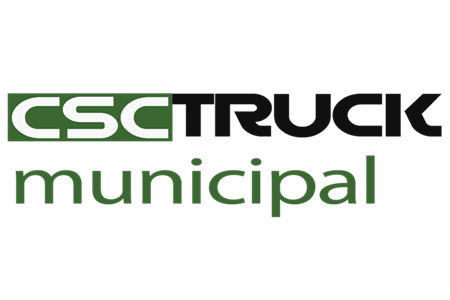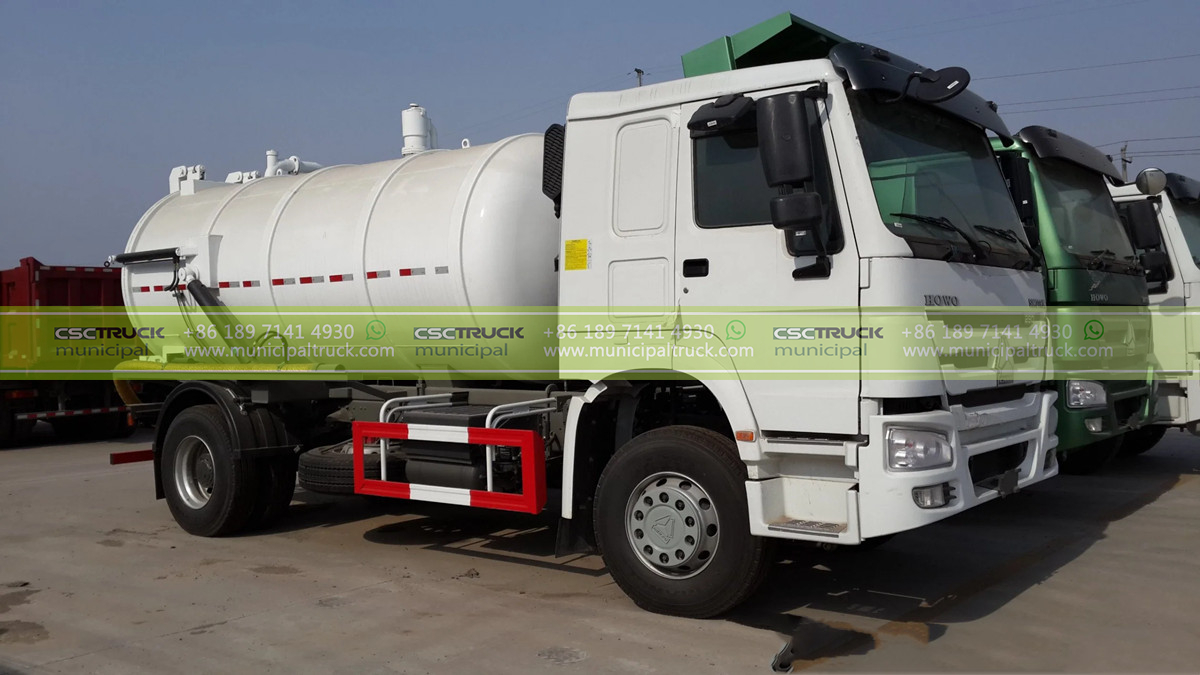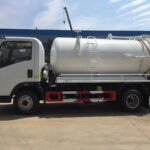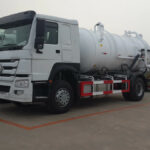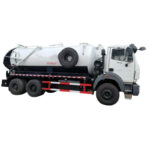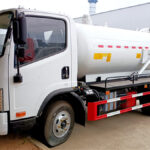In the modern world, wastewater treatment and management are critical for public health and environmental protection. One integral part of this process is the collection and disposal of sludge, a byproduct of wastewater treatment that consists of solid waste materials and bacteria-rich organic matter. Sludge collector trucks play a pivotal role in this process, ensuring that the waste from sewage treatment plants is safely and efficiently transported and disposed of. In this article, we will explore what a sludge collector truck is, how it works, its importance in maintaining environmental health, and its role in wastewater management.
Understanding Sludge
Before delving into the details of a sludge collector truck, it’s essential to understand what sludge is and why it is generated. Sludge is the semi-solid residue left behind after the treatment of wastewater in sewage treatment plants. When wastewater enters these facilities, it goes through various processes to remove impurities, contaminants, and organic matter. This purification process results in the separation of solids from the liquid component. The solids, often referred to as sludge, contain both organic and inorganic materials, including pathogens, heavy metals, and other pollutants.
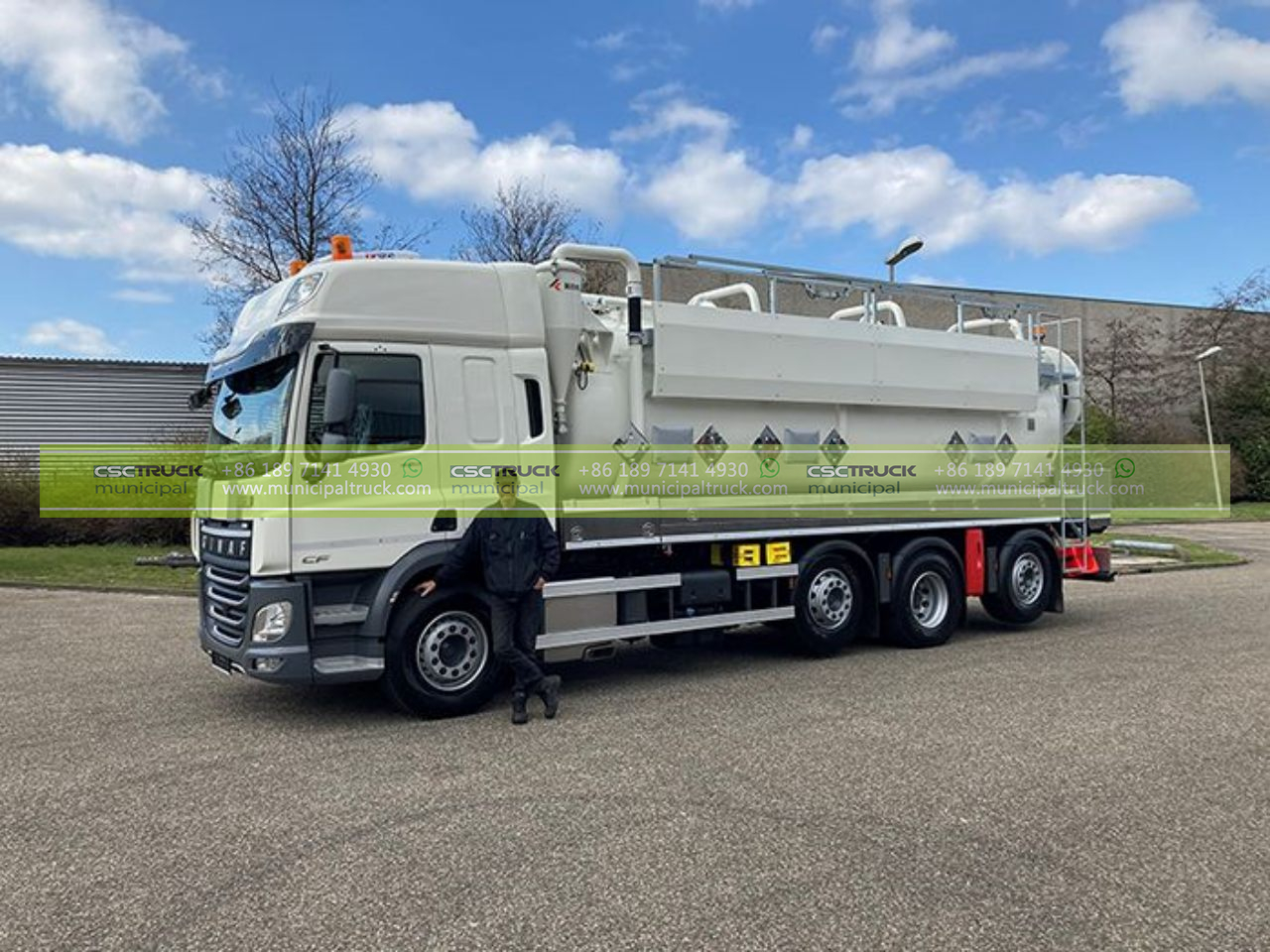
Why Sludge Must Be Collected and Removed
The proper collection and disposal of sludge are crucial for several reasons:
1. Environmental Protection: Sludge contains harmful substances and pathogens that, if not properly managed, can contaminate water bodies and soil, posing a significant risk to the environment and public health.
2. Resource Recovery: Some of the components in sludge, such as organic matter, can be beneficial if properly treated. They can be converted into biogas or used as fertilizer, reducing waste and promoting resource recovery.
3. Preventing Odors and Nuisance: Sludge can produce foul odors and attract pests. Timely removal helps in maintaining a clean and odor-free environment around wastewater treatment plants.
4. Preventing Clogging: The accumulation of sludge in sewage systems and treatment facilities can lead to clogs and system malfunctions, affecting the overall efficiency of wastewater treatment.
The Role of Sludge Collector Trucks
Sludge collector trucks, also known as sludge suction trucks or vacuum tankers, are specialized vehicles designed to collect and transport sludge from sewage treatment plants to designated disposal sites. These trucks are equipped with vacuum systems and storage tanks that allow them to effectively and efficiently vacuum up sludge and transport it in a contained manner. The primary components and features of a sludge collector truck include:
1. Vacuum Pump: The heart of a sludge collector truck is its vacuum pump, which creates suction to extract sludge from treatment facilities. These pumps are powerful and can generate enough suction to lift heavy and viscous sludge efficiently.
2. Storage Tank: Sludge is stored in a sealed tank within the truck. The tank is designed to contain the sludge securely and prevent leakage or spillage during transport.
3. Hose and Nozzle: Sludge collector trucks are equipped with hoses and nozzles that can be extended into treatment tanks or basins to reach the sludge. These hoses are designed to withstand the harsh chemical and physical conditions inside sewage treatment plants.
4. Filtration System: To separate liquids from solids, sludge collector trucks are equipped with filtration systems that allow for the separation of water and other liquids from the collected sludge. This ensures that the sludge remains as dry as possible for efficient disposal.
5. Discharge Mechanism: Sludge can be discharged at disposal sites, such as landfills or treatment facilities, using the truck’s built-in discharge mechanism. This process is carefully managed to prevent environmental contamination.
6. Safety Features: Due to the hazardous nature of sludge, sludge collector trucks come with safety features such as ventilation and pressure relief systems to prevent accidents and ensure the safety of operators.
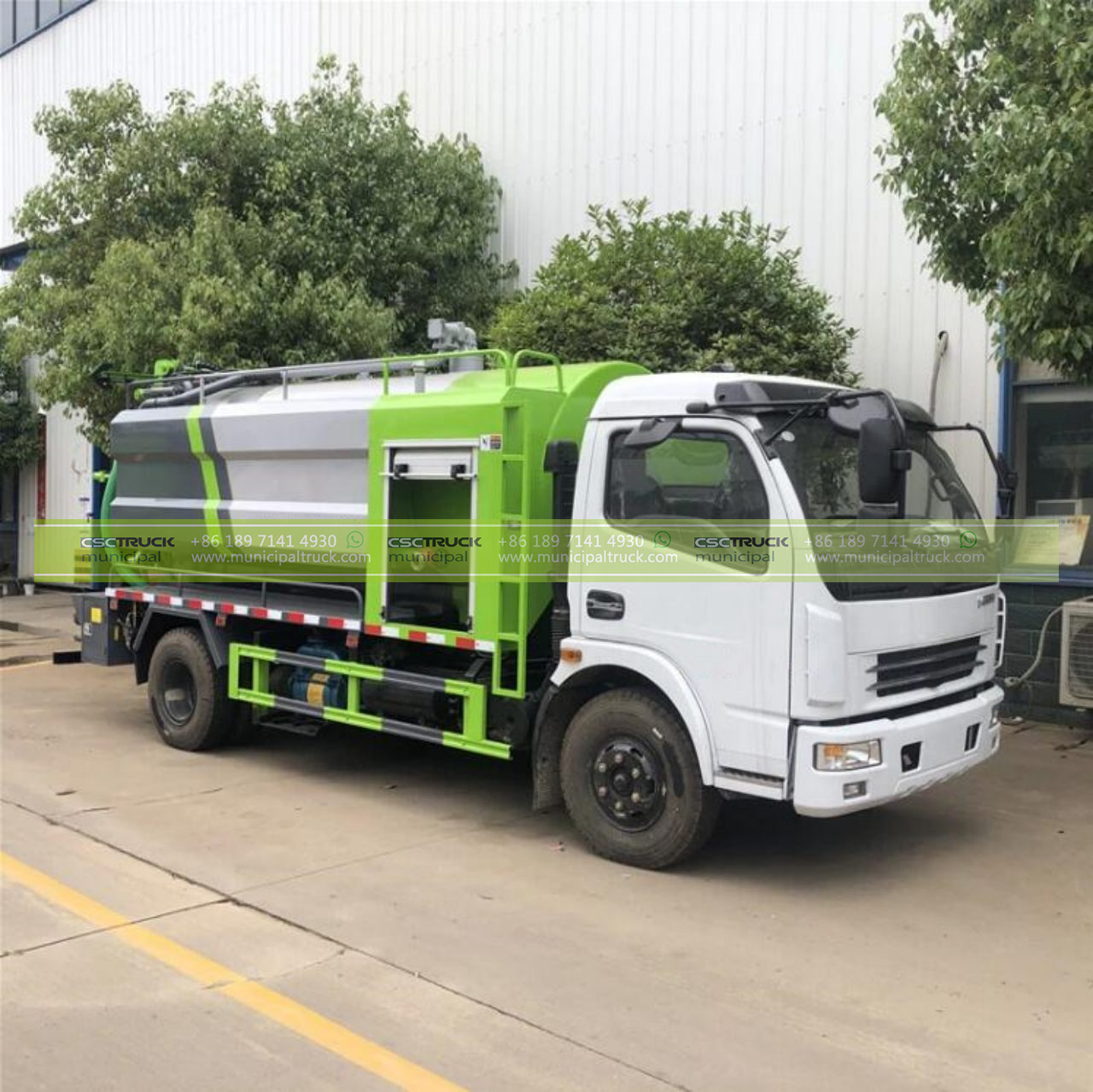
The Process of Sludge Collection
The process of collecting sludge using a sludge collector truck involves several key steps:
1. Arrival at the Treatment Plant: The sludge collector truck arrives at the sewage treatment plant, and its operators prepare the equipment for use.
2. Positioning the Hose: The hose and nozzle are extended into the treatment tank or basin containing the sludge.
3. Suction and Collection: The vacuum pump is activated, creating suction that lifts the sludge from the treatment tank and into the storage tank of the truck.
4. Filtration: As the sludge is collected, the filtration system within the truck separates any liquids from the solids, making the sludge drier and more manageable.
5. Transport: Once the truck’s storage tank is filled, it transports the collected sludge to the designated disposal site.
6. Discharge: At the disposal site, the sludge is carefully discharged, following strict safety and environmental guidelines to prevent contamination.
The Importance of Sludge Collector Trucks
Sludge collector trucks play a vital role in maintaining the health and hygiene of our communities and the environment. Here are several reasons why these trucks are indispensable:
1. Environmental Protection: Sludge collector trucks ensure that the potentially hazardous waste from sewage treatment plants is handled and transported with care to prevent environmental pollution.
2. Public Health: Proper sludge management prevents the spread of waterborne diseases and reduces the risk of contamination of water bodies, which could affect human health.
3. Operational Efficiency: Timely removal of sludge from sewage treatment plants helps maintain their operational efficiency, preventing clogs and damage to infrastructure.
4. Resource Recovery: Some sludge components can be repurposed or converted into useful resources, contributing to sustainable practices and waste reduction.
5. Odor Control: Sludge collector trucks help prevent foul odors and nuisances around wastewater treatment plants, contributing to a healthier and more pleasant living environment for nearby communities.
Challenges and Innovations in Sludge Management
While sludge collector trucks have been instrumental in managing sludge, there are challenges and ongoing innovations in the field of sludge management. Some of these challenges include:
1. Environmental Impact: Disposing of sludge can have environmental implications, and there is a growing focus on finding more sustainable methods, such as converting sludge into biogas or using it for energy generation.
2. Regulatory Compliance: Meeting strict environmental regulations and safety standards is essential in sludge management, which requires constant monitoring and adherence to evolving legal frameworks.
3. Technological Advancements: Ongoing advancements in sludge treatment technologies aim to make the process more efficient and environmentally friendly.
4. Waste Reduction: Efforts to minimize the generation of sludge are ongoing, with a focus on improving wastewater treatment processes to produce less waste.
5. Community Awareness: Educating communities about the importance of proper sludge management and waste reduction is crucial in maintaining public support and participation in these initiatives.
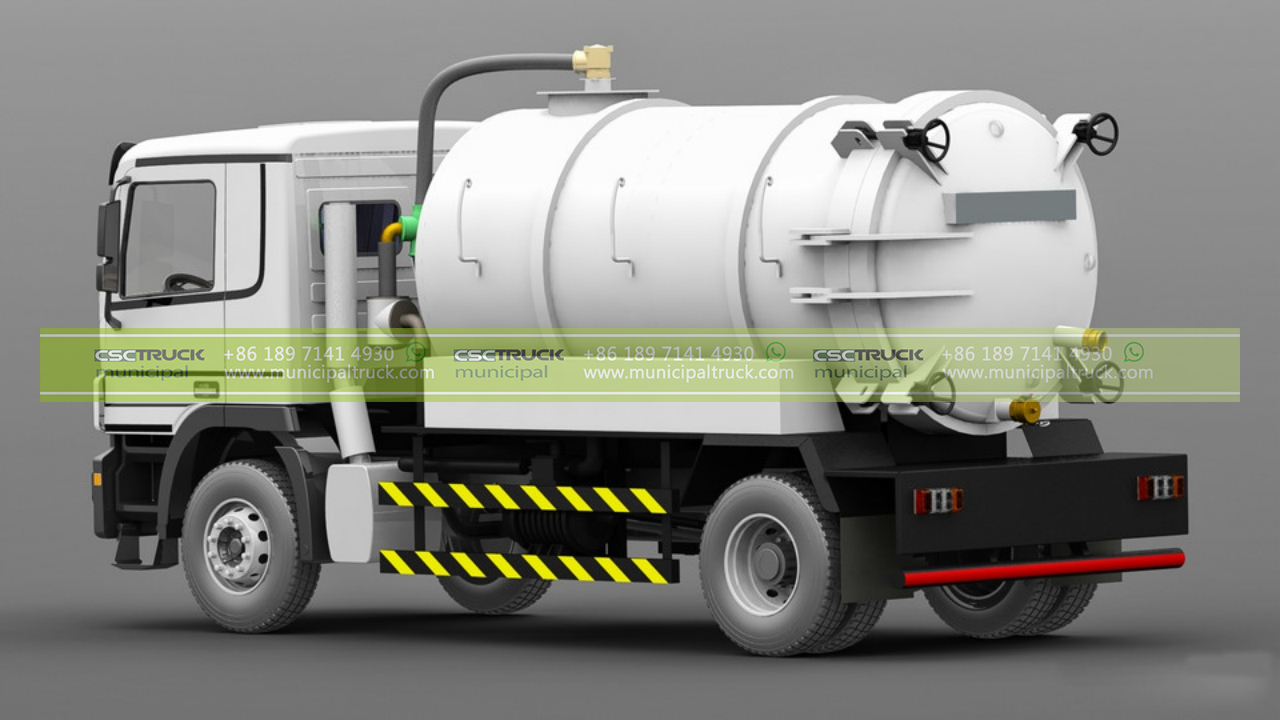
In conclusion, sludge collector trucks are unsung heroes in the world of wastewater management. They perform a critical role in safeguarding our environment, protecting public health, and ensuring the efficient operation of sewage treatment plants. As the world grapples with increasing urbanization and environmental concerns, the proper management of sludge is paramount. Through ongoing innovations and a commitment to best practices, sludge management can evolve to become more sustainable and eco-friendly, contributing to a cleaner and healthier planet for all.
Contact us for this municipal truck or similar trucks: [email protected] Call us or What's APP us: +86 189 4292 3930
